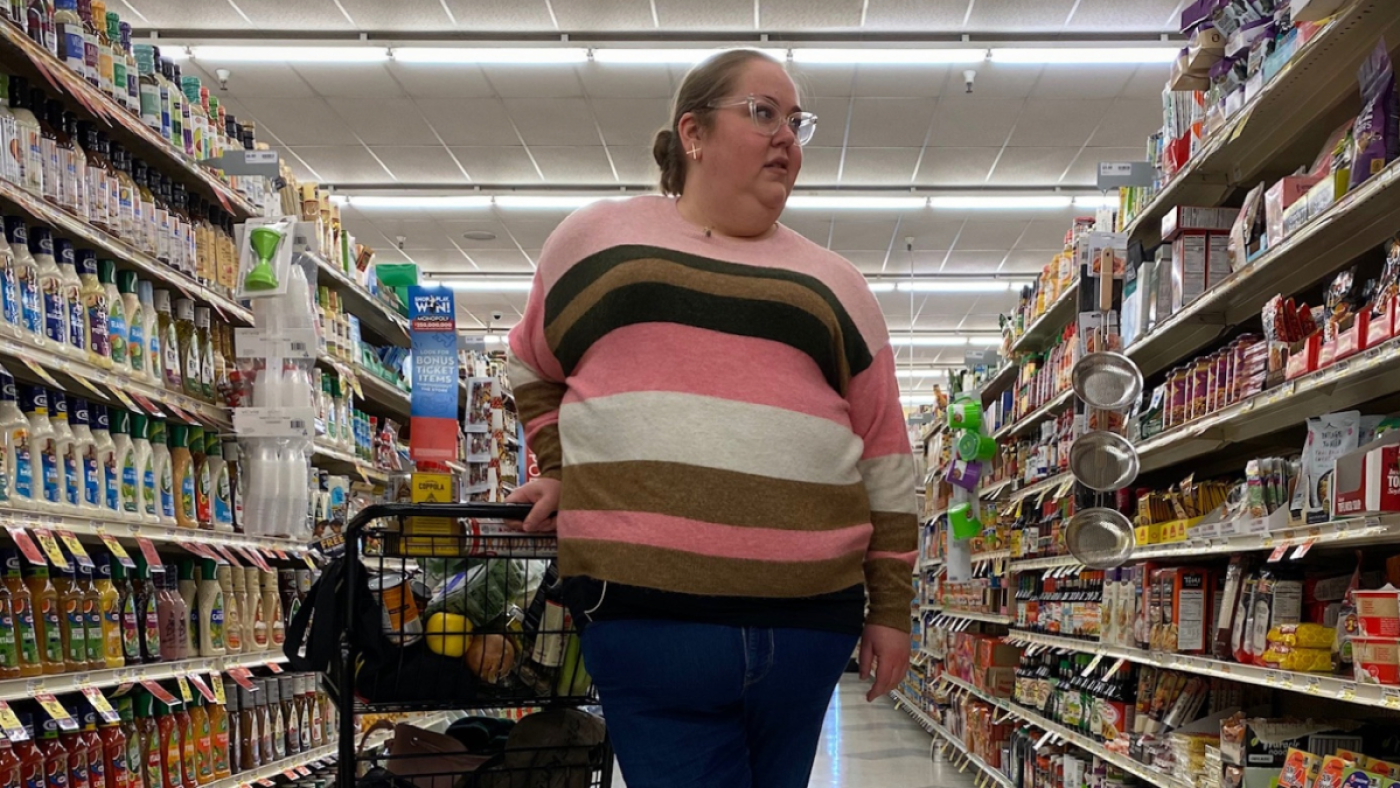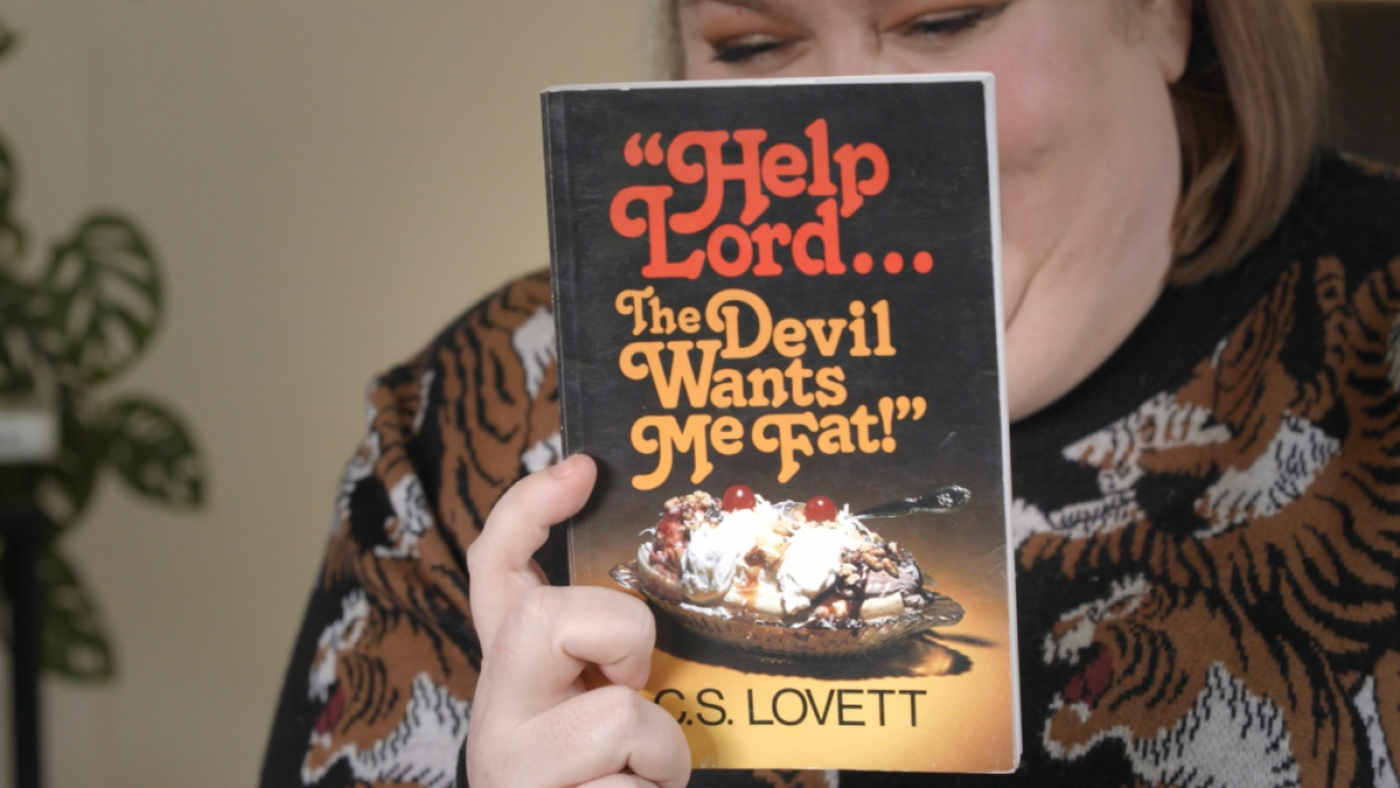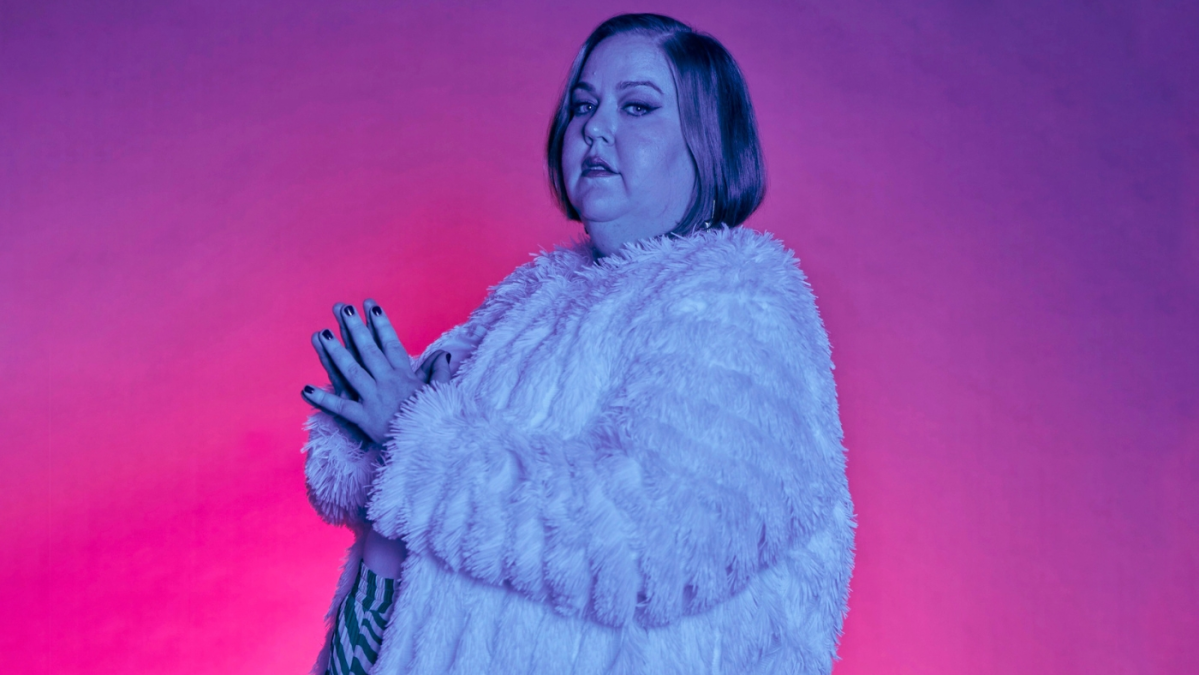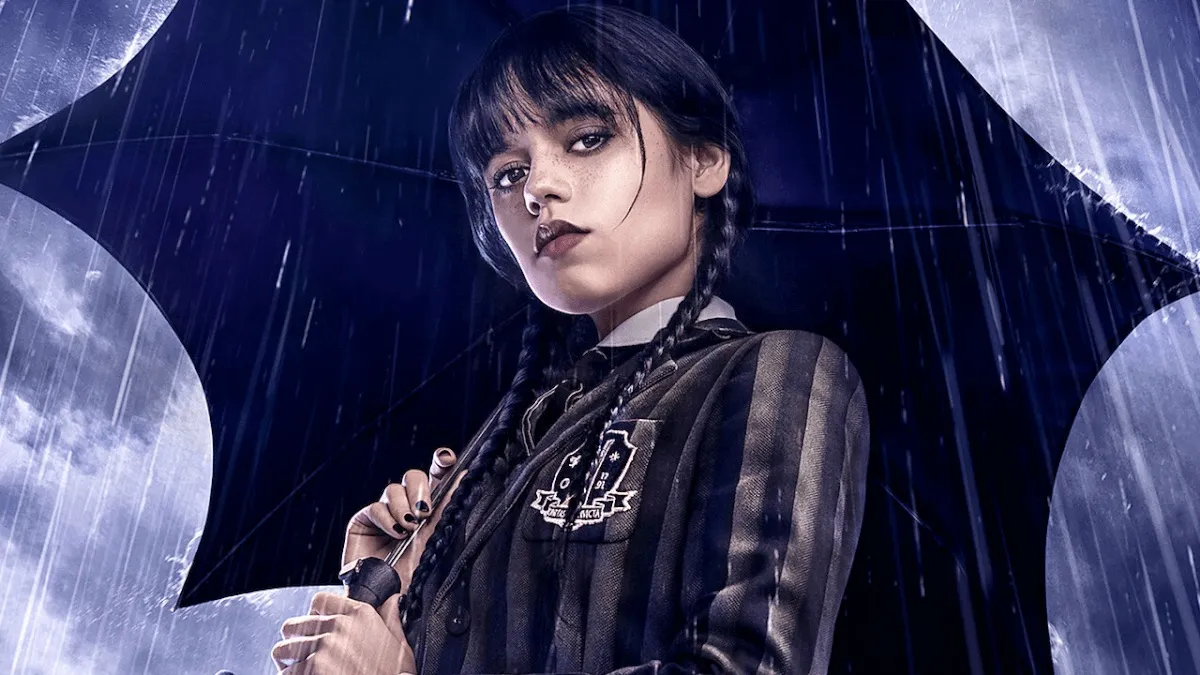On February 7, 2016, author Aubrey Gordon posted an essay entitled “A request from your fat friend: what I need when we talk about bodies” to Medium. Now, Your Fat Friend is a full-blown documentary film.
At the time, she wrote anonymously under the pseudonym Your Fat Friend, something she would do until her debut book What We Don’t Talk About When We Talk About Fat was released in 2020. “So it’s time to tell you who I am. I’m Aubrey Gordon, I’m 37 years old, and I weigh 350 pounds. I’ve been waiting to meet you,” she wrote for Self on the eve of the book’s publication.
Now, Gordon is a New York Times bestselling author with two books to her name and cohost of the award-winning podcast Maintenance Phase, in which she and journalist Michael Hobbes debunk wellness culture and weight loss myths. Gordon is also the subject of Jeanie Finlay’s Your Fat Friend.
Your Fat Friend has been on the festival circuit throughout 2023 and will begin an Oscar-qualifying run in New York City on Friday, December 8 at DCTV’s Firehouse Cinema, including Q&A sessions with Finlay on select dates. The film will be released in theaters in winter 2024, and for those who are waiting to see it, it’s worth the anticipation.
For the last seven years, Gordon has been a highly visible public figure in the fat liberation and activist space, even when she was anonymous. She’s been the target of hate campaigns and doxxing, and she’s also become a beacon of light and hope for fat folks. Your Fat Friend follows Gordon during a vulnerable period of her life, during which she writes her first book and starts co-hosting Maintenance Phase.
Aubrey Gordon is especially vulnerable in Your Fat Friend

Whatever your familiarity with Gordon’s work, it’s a different experience hearing and seeing her talk about it on film—especially because her family plays such a large role. During filming, Gordon’s mom, Pam, begins to unpack the harm she did not only to herself but to her daughter by buying into diet culture and fad diets. Gordon’s dad, Rusty, a pilot, acknowledges Gordon’s writing about flying while fat and says he has seen similar incidents to what she describes all the time.
“When [my seatmate] sat down, he didn’t meet my eyes. He adjusted the arm rest, assertively claiming it as his own. He needn’t have—I had learned that any free space belonged to the thin. My arms were crossed tight across my chest, thighs squeezed together, ankles crossed beneath my seat. My body was knotted, doing everything it could not to touch him, not to impose its soft skin. I folded in on myself, muscles aching with contraction,” Gordon wrote in 2017, before diving into statistics about just how inhospitable airline policies are toward fat flyers.
In the Your Fat Friend documentary, Gordon further explains how the world simply isn’t built for fat people. Airplane seats, theater seats, restaurant booths, bar stools, and even the rental bikes around Gordon’s hometown of Portland, Oregon, aren’t built to accommodate people of size. This creates a baseline for size discrimination, which is especially prevalent in medicine. As Gordon explains, she avoided doctors for more than eight years because she was so tired of being mistreated. When Finlay follows her to a pharmacy to get a COVID-19 vaccine, Gordon is prepared to ask the pharmacist for a longer needle since the standard ones used for admission of the vaccine may not penetrate deeply enough to be effective for fat bodies. She’s pleasantly surprised when the pharmacist has an information sheet posted about this issue and has the right equipment on hand, so she doesn’t have to fight for what she needs.
Unfortunately, for every win Gordon experiences, she also has to grapple with microaggressions and worse—even from her family, who practically glow with pride over her success. For example, at her birthday celebration, Rusty insists on a sugar-free, gluten-free cake, which is complicated by the print of Gordon’s dog’s face and the Maintenance Phase logo since they have to be printed on what’s essentially a sugar wafer. As he talks about it, Gordon starts to say that the cake didn’t need to be sugar-free or gluten-free, but she opts not to finish the sentiment. It’s a familiar and stinging moment for fat viewers, and it’s only one scene in which Gordon struggles with how her family just doesn’t get it regardless of how she approaches the topic of anti-fatness with them.
In addition to vulnerable moments talking about her family, Gordon also explains how she struggles with an eating disorder and has yet to find a doctor who will give her treatment that won’t make things worse. She explains how anxious she feels ahead of her first in-person author event, especially after she’s doxxed, which increases her persistent fears for her safety. As she shops for groceries, she talks about how a woman once removed a melon from her cart and told Gordon it had too much sugar for her. She’s shared this story before, but each time, it sounds more ridiculous.
“It’s a melon,” Gordon says. “What do you want from me?”
Your Fat Friend shows how Gordon’s life informs every aspect of her work, and vice versa

Gordon’s first post as Your Fat Friend started as a letter to a friend whose treatment of her didn’t feel good. She sent it to another friend for a tone check and he asked if she would post it online. Gordon agreed, but only if she could post it anonymously. She feared retribution even from social justice-minded colleagues. “Within one week, 40,000 people had read that letter. So I just kept writing,” Gordon wrote for Self in 2020.
In Your Fat Friend, Gordon talks about being on the swim team as a kid and how free she felt in the water. Now, it’s “more work than it’s worth” to go swimming because of how much judgment she would face. One of her great joys is now one of the things she avoids because anti-fatness is so ubiquitous.
Aubrey Gordon is fat. Yet at every turn, people either want her to stop calling herself that because they associate the word “fat” with things like “sloppy” or “lazy” or “stupid, or they want her to magically become thin. In addition to tackling these individual conversations, Gordon writes for people all over the world. And with Hobbes on Maintenance Phase, she debunks myths about dieting and weight loss and fatness. Gordon actually collects vintage diet books, and in Your Fat Friend, she explains how the fad diets that come and go are just repackaged versions of old diets that fell out of fashion.
Although much of Your Fat Friend tackles the difficulty of Gordon’s work and how personal it is, Finlay’s documentary also captures the overwhelming joy of Gordon’s readers. The film concludes with the launch event for What We Don’t Talk About When We Talk About Fat at Powell’s Books. Both of her parents cry during Gordon’s reading of her essay “Just Say Fat.” And despite how many things they get wrong, Gordon expresses her gratitude for how many other things her parents get right.
In the final moments of Your Fat Friend, Gordon says, “For a lot of fat people, they don’t actually know one single person who they can go to and be like, ‘I’m having a rough day and it’s because of the way someone treated me, not because I’m a fat person.’ Fat people have spent our entire fucking lives changing to fit the world around us. You could be the one person that we don’t have to change in order to be with, right? You could be the one person who’s like, ‘It’s okay. I don’t care. What can I do for you?”
Your Fat Friend is an excellent introduction to fat liberation because of how incredibly human it is. It not only explores Gordon’s work in-depth and examines how she came to be such an integral figure in the fat activist space, but it also breaks down why anti-fatness is harmful and dangerous. If you’re already a fat liberationist, you may not necessarily learn anything new from this film—but consider watching to support fat art and to gain a deeper understanding of Gordon’s work.
(featured image: Glimmer Films)









Published: Dec 7, 2023 11:29 am